Year in review: Top 10 patent cases in France
JUVE Patent has compiled the ten most important cases in national proceedings across all French instances from the past 15 months. Many of the key judgments come from the pharmaceutical space. Interestingly, French judges ocasionally diverged from their peers in other European countries concerning the same cases.
17 March 2025 by Konstanze Richter
While the UPC in France increasingly serves as an alternative for national patent disputes, the Paris civil courts remained busy and issued several significant rulings. Most landmark decisions concerned pharmaceutical cases, traditionally a key field for patent disputes in France. In some instances, the courts reached different conclusions than judges in other countries. Meanwhile, several long-running high-profile cases were settled or withdrawn.
According to a notice of withdrawal at the Court of Appeal in late September, Philips and Thales reached a settlement after fighting for years over SEPs. This also affects standards body ETSI, which appeared as co-defendant in several disputes between Philips and TCL, Xiaomi and, most recently, Thales. As shown in a Judicial Court order, a dispute between WSOU and ZTE over mobile communications ended with the withdrawal of the complaint (case ID: 20/10462).
Upcoming decisions
Several important decisions are pending in the coming months. Following the CJEU ruling on interpreting the SPC regulation, the French Supreme Court is examining the pending cases over Janumet and Inegy. The court had stayed proceedings pending the European judges’ decision.
Also pending at the Supreme Court is the dispute between Lufthansa Technik against Astronics and Panasonic Avionics as well as Thales. The judge rapporteur filed its report in July 2024. The court expects to issue its decision in early 2025.
Furthermore, late March will see the start of the French proceedings in the pan-European dispute between Bayer and generic drug companies over nexavar. The Paris Judicial Court scheduled the oral hearing for 27 March. Bayer will rely on its regular advisors from A&O Shearman. Biogaran has instructed its usual counsel Casalonga, while Schertenleib will represent Sandoz, Zentiva and Mylan.
JUVE Patent’s top 10 national cases in 2024 and early 2025:
- Bayer’s French defeat over Xarelto
- Paris court revokes Sanofi’s cabazitaxel patent
- Intellectual Venture’s case moves to Supreme Court
- No success for Biogen against Teva over Tecfidera
- Google’s appeal fails in dispute against Sonos
- Viatris and Schertenleib invalidate Allergan glaucoma treatment patent
- Supreme Court issues landmark decision regarding transfer of ownership
- Peugeot and August Debouzy keep scooters rolling in France
- EPO stops Labrador’s suit against bioMérieux in its tracks
- Clinical trials can constitute patent infringement
Bayer’s French defeat over Xarelto
Bayer is fighting hard for its blockbuster drug. While the originator has mainly seen success in Germany and the Netherlands, the manufacturer was not as lucky in France.
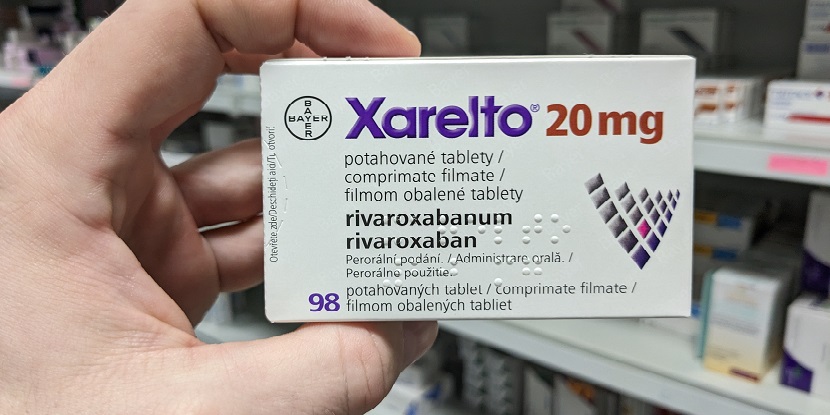
Bayer is going head-to-head with various generics companies across Europe. ©Semi/ADOBE STOCK
Bayer continues to wage a multi-jurisdictional battle over its blockbuster drug Xarelto. While the basic patent for the active ingredient rivaroxaban has expired, a dosage patent EP 1 845 961 still protects the anticoagulant. In France, the German pharmaceutical company filed suits against several generics manufacturers including Zentiva and Sandoz.
In March 2024, the Paris Judicial Court declared the French part of EP 961 invalid for lack of inventive step in proceedings between Bayer and Sandoz (case ID: 22/08612). On the same day, in a parallel case against Zentiva, the court rejected Bayer’s application for a preliminary injunction (case ID: 24/51632). The panel under presiding judge Jean-Christophe Gayet found that Zentiva had not infringed the patent. The validity of the patent did not come into question in this case.
The French decisions mark a departure from rulings in other jurisdictions. Just one day before the Paris judgment, the District Court The Hague prohibited pharmaceutical company Teva from launching a generic version of rivaroxaban in the Netherlands. The first-instance court found that selling the drug would infringe Bayer’s valid dosage patent for Xarelto. In November 2023, the court had already ruled against Sandoz. In Germany, the Higher Regional Court Munich dismissed an appeal against preliminary injunction decisions from the Munich Regional Court. However, in April 2024, the UK High Court revoked EP 961 for lack of inventive step, following the French court’s reasoning.
Bayer relied on international full-service firm A&O Shearman. Paris-based partner Laetitia Bénard led the French proceedings for the originator. French boutique Schertenleib represented Sandoz in the validity proceedings. Zentiva turned to the French practice of Pinsent Masons.
Find out more about the case and its advisors here
Paris court revokes Sanofi’s cabazitaxel patent
Sanofi’s chemotherapy drug Jevtana is revoked in one of the year’s most important classical pharma patent battles.
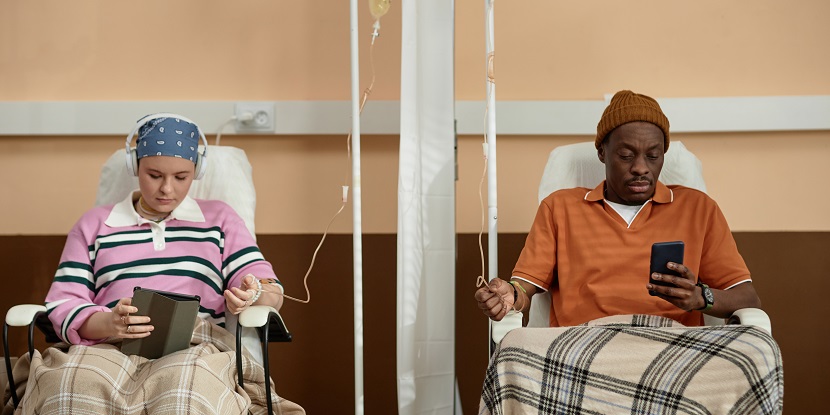
Sanofi’s patent protects a chemo drug used to treat metastatic prostate cancer. ©Seventyfour/ADOBE Stock
In September, the Judicial Court Paris revoked Sanofi’s EP 2 493 466 on the grounds of inter alia obviousness. The judges cited prior Phase I and II clinical data on cabazitaxel and an ongoing Phase III trial on the claimed indication. The patent covers the active ingredient cabazitaxel for treating prostate cancer, marketed as Jevtana.
The ruling marks a setback for Sanofi in its pan-European dispute with generic drug manufacturers over its chemotherapy treatment. The decision also aligns with recent French court rulings on pharmaceutical patents for fingolimod and dimethyl fumarate, demonstrating the court’s approach to assessing inventive step. The trend suggests French judges are taking positions favourable to generics companies.
Last May, Sanofi filed a parallel case at the UPC with a team from Herbert Smith Freehills led by Laura Orlando. This represents one of the first traditional pharmaceutical disputes between an originator company and generics manufacturers at the new court.
Find out more about the case and its advisors here
Intellectual Venture’s case moves to Supreme Court
After a defeat for the NPE at the Court of Appeal, the battle over SEPs is now pending at the Cour de Cassation. In parallel proceedings, patents were declared invalid and claims consequently withdrawn.
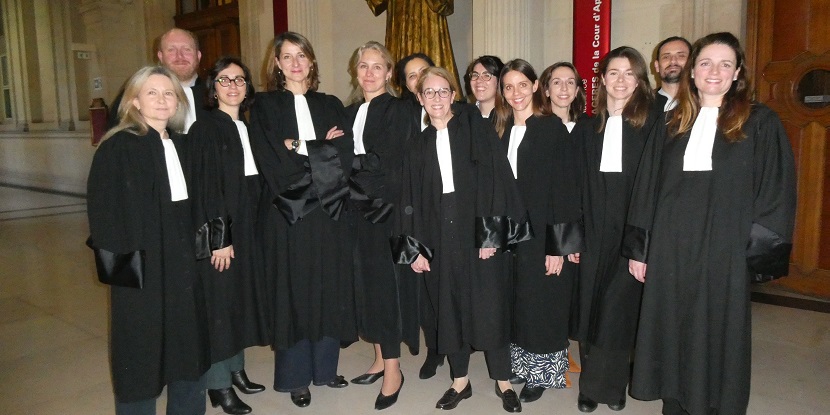
The joint defence group (from left to right): Anne-Charlotte Le Bihan, Philippe Marchiset, Pascaline Vincent, Marianne Gabriel, Pauline Debré, Tougane Lumeau, Sophie Micallef, Charlotte Cuny, Laetitia Nicolazzi, Marion Delvallet, Guillaume Dubos, Amandine Métier. © JUVE Patent
Intellectual Ventures remains embroiled in a long-running dispute over SEPs with various telecommunications companies in France since 2017. The main battle centres on EP 1 694 020, which protects a multicarrier modulation system and method. Related proceedings concern EP 1 327 374 and EP 21 46 439.
In spring 2024, the Paris Court of Appeal heard the NPE’s claims regarding EP 020 against Orange, Bouygues Telecom, and SFR, along with intervening parties Broadcom, Intel, Infineon, Ribbon, Sagemcom, Sercomm, and ZTE. The judges declared the patent invalid and not infringed, upholding the first-instance decision from 2021. The case is now pending at the French Supreme Court (Cour de Cassation).
Meanwhile, in summer 2024, after the EPO Boards of Appeal upheld the Opposition Division’s decision to revoke EP 439, Intellectual Ventures withdrew its claims against Bouygues, Huawei, and SFR (case ID: 18/00408 and 18/00409). As for EP 374, in February this year the Court of Appeal confirmed the first-instance decisions, declaring the patent invalid for lack of novelty (case ID: 23/02592 and 23/02586).
Find out more about the case and its advisors here
No success for Biogen against Teva over Tecfidera
The Paris Judicial Court dismissed a PI in Biogen’s dispute with Teva Santé over Tecfidera.
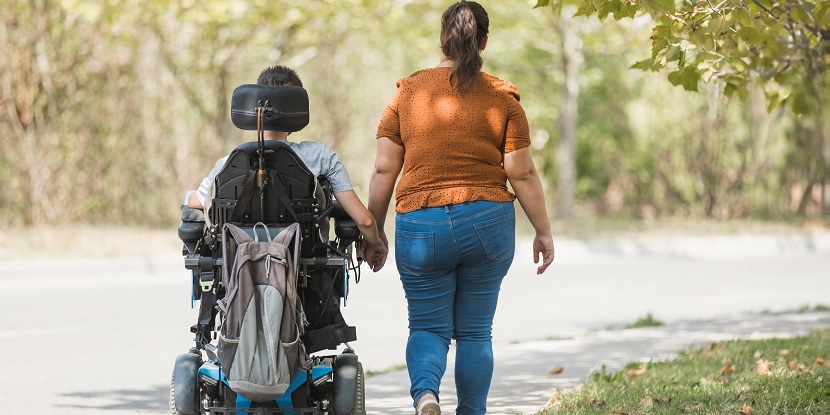
Biogen’s Tecfidera is used to treat MS, which can affect a person’s ability to walk. ©24K-Production/ADOBE Stock
With market exclusivity for Tecfidera having expired in Europe on 1 February 2025, the battle for market share has begun in earnest. In the pan-European dispute over Biogen’s EP 2 653 873, French judges dismissed a preliminary injunction claim against Teva Santé (case ID: 24/58777). This came shortly after the originator saw success in Germany. EP 873 is a formulation patent of the original basic patent for Tecfidera. It protects a pharmaceutical composition comprising active ingredient dimethyl fumarate or monomethyl fumarate, plus one or more pharmaceutically acceptable excipients.
In December 2024, the European Patent Office’s Opposition Division upheld EP 873 after 14 opponents had challenged the Tecfidera patent. Several opponents have since filed an appeal with the Boards of Appeal. The BoA will hear these appeals at the end of November 2025.
In France, Biogen asked the Paris court to prevent Teva Santé from launching its products until February 2028. However, the Paris judge expressed doubts about whether the patent would survive a revocation action and declined to grant the preliminary injunction.
Biogen has also filed a main action against Viatris and Mylan as well as Neuraxpharm. The Paris Judicial Court heard the cases on the merits against the defendants on 6 March 2025. Biogen and Mylan and Viatris have previously faced each other in PI proceedings.
Find out more about the case and its advisors here
Google’s appeal fails in dispute against Sonos
The Paris Court of Appeal follows the lead of the first-instance court.
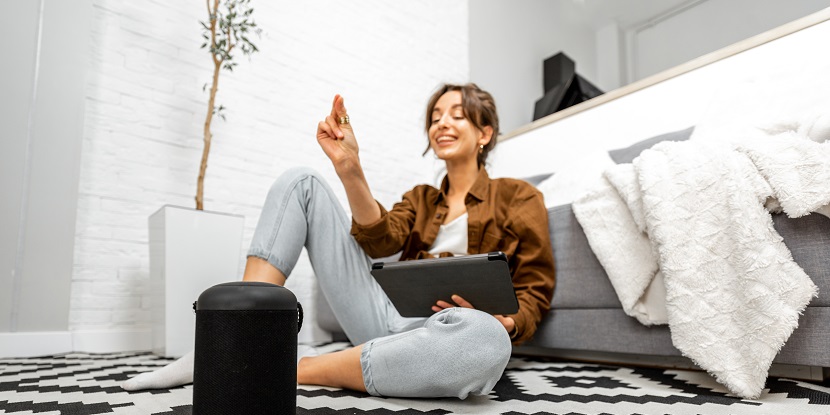
The Court of Appeal confirmed Sonos had not infringed Google’s patent. ©rh2010/ADOBE STOCK
Google and wireless sound systems manufacturer Sonos are battling across Europe over speaker technology. Google claims Sonos has infringed two patents EP 27 64 491 and EP 15 79 621. The patents protect digital rights management and search functions that allow users to control Sonos speakers via mobile devices. Google filed an infringement suit against Sonos at the Judicial Court Paris in August 2020.
In 2021, Google filed a request with the French patent office INPI to limit the French part of EP 491. However, Sonos maintained its counterclaims challenging the validity of the patent.
For EP 621, the Judicial Court Paris ruled in March 2022 that while the patent was valid, Sonos had not infringed. Google appealed the judgment. In May 2024, the Court of Appeal dismissed the appeal and upheld the first-instance ruling in its entirety (case ID: 22/06139).
The panel comprised presiding judge Isabelle Douillet alongside judges Déborah Bohee and Françoise Barutel. At the time, Barutel also served as a part-time judge at the UPC Court of Appeal but stepped down from the role shortly after this ruling.
From the outset, Google relied on litigator David Por, who was then a partner in the Paris office of A&O Shearman. Por recently moved to Clifford Chance. Sonos retained litigator Cyrille Amar of IP boutique Amar Goussu Staub.
Find out more about the case and its advisors in other countries here (the Netherlands) and here (Germany)
Viatris and Schertenleib invalidate Allergan glaucoma treatment patent
The Paris Judicial Court found Allergan’s patent invalid, following a decision by the Paris Court of Appeal which had declined to impose a preliminary injunction against the defendant.
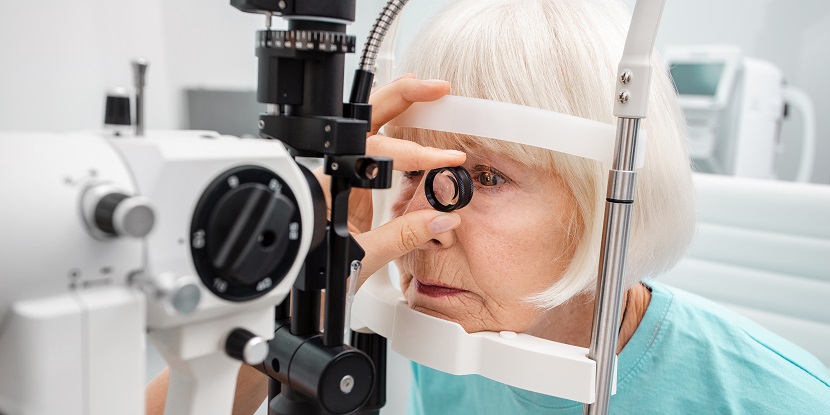
Active ingredient bimatoprost can help treat glaucoma, which damages the optic nerve. ©Peakstock/ADOBE STOCK
Allergan had accused Viatris of infringing its patent EP 1 754 434. Valid until 2026, the patent covers a composition containing a lower concentration of bimatoprost and a higher concentration of BAK, as found in the product Lumigan 0.1mg/ml. The drug is used in eye-drop form to treat glaucoma. Allergan claimed that Viatris’ drug Bimatoprost MylanPharma 0.1 mg/ml is a generic version of Lumigan.
In July 2021, the Paris Court of Appeal upheld a first-instance decision to reject Allergan’s request for a preliminary injunction against Viatris, citing a challenge over the patent’s validity. Following these PI proceedings, Allergan brought infringement proceedings against Viatris. The defendant counterclaimed for invalidity due to lack of inventive step. In April 2024, the Paris Judicial Court ruled in Viatris’ favour, invalidating the patent.
Find out more about the case and its advisors here
Supreme Court issues landmark decision on ownership transfer
In a dispute between Sony and Subsonic over patents for games console controllers, the Supreme Court issued a key decision on the right of the patent holder to sue when the patent has been transferred.
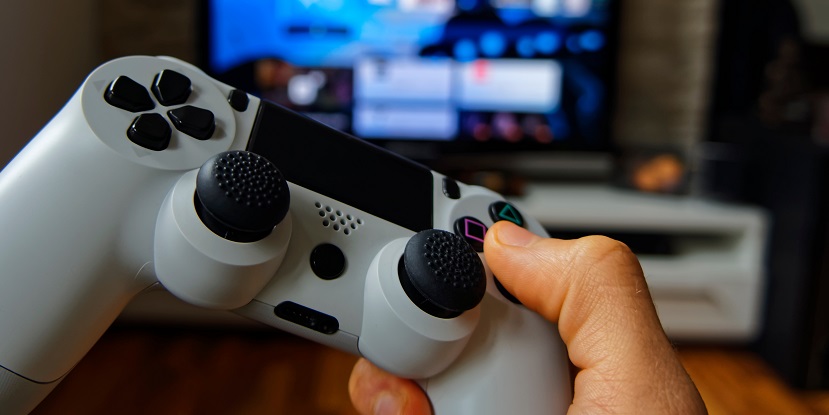
The transfer of patents for PlayStation controllers was not reflected in the national register. ©jehuty18/ADOBE STOCK
The dispute revolves around three patents covering controllers for the popular Sony PlayStation games console. Sony Computer Entertainment was registered in the European Patent Register as the applicant for all three patents. However, it transferred the patent rights to Sony Interactive Entertainment during a restructuring in 2010.
This transfer played a major role in the ensuing patent dispute that Sony Interactive Entertainment launched against Subsonic. At the heart of the dispute is whether a plaintiff can file a claim if the patent has been transferred to a company but the transfer has not yet been registered in the national patent register.
When the lawsuit began in 2016, the French patent office INPI had not yet received notification of the patents’ transfer from the original applicant Sony Computer Entertainment. Thus, Sony Interactive Entertainment was not yet officially registered as the owner of the patents-in-suit.
The Judicial Court Paris ruled that since Sony had not entered the transfer of the IP rights into the national patent register, the infringement action was inadmissible. Sony appealed against the ruling. In 2022, the Court of Appeal ruled that the assignee was only entitled to launch a lawsuit for infringement committed after registration.
In April 2024, the French Supreme Court overturned the Court of Appeal’s decision. According to the Cour de Cassation in Paris, “From the registration in the register of the transfer of ownership of the patent, the successor in title is entitled to bring an action for infringement for the purpose of obtaining compensation for the damage caused to him by the acts committed since the transfer as well as, if the act transferring the rights specifies it, for the damage caused to him by the acts committed before the transfer.”
The case has been remitted to the Court of Appeal, where it is now pending. A parallel antitrust case is also pending before the French antitrust authority.
Find out more about the case and its advisors here
Peugeot and August Debouzy keep scooters rolling in France
The Paris Court of Appeal limited a previous first-instance ruling that favoured competitor Piaggio.

The dispute between Piaggio and Peugeot concerns three-wheeled vehicles with a tilting suspension system ©Aliaksandr/ADOBE STOCK
The patents originally at issue were EP 1 363 794, EP 1 561 612, EP 1 571 016 and EP 1 635 234, as well as community design 487723-0001. These protect a tilting technology that enables riders of three-wheeled scooters to lean into corners.
Piaggio filed an infringement claim at the Paris Judicial Court in 2015. In September 2021, the court ruled that Peugeot had indeed infringed parts of Piaggio’s patent EP 612. The judges imposed comprehensive bans on sales, distribution, production, import and manufacturing, although these were not enforced. On appeal, the Paris Court of Appeal upheld the first-instance judgment regarding infringement of EP 612. However, the judges found the initial injunction to be disproportionate.
In their ruling, they determined that financial compensation would be more appropriate to compensate Piaggio for damages suffered and to restore the patentee’s rights.
Find out more about the case and its advisors here
EPO stops Labrador’s suit against bioMérieux in its tracks
After EPO revokes Labrador’s patent, the French dispute comes to an anticlimatic end. However UPC and German proceedings remain pending.
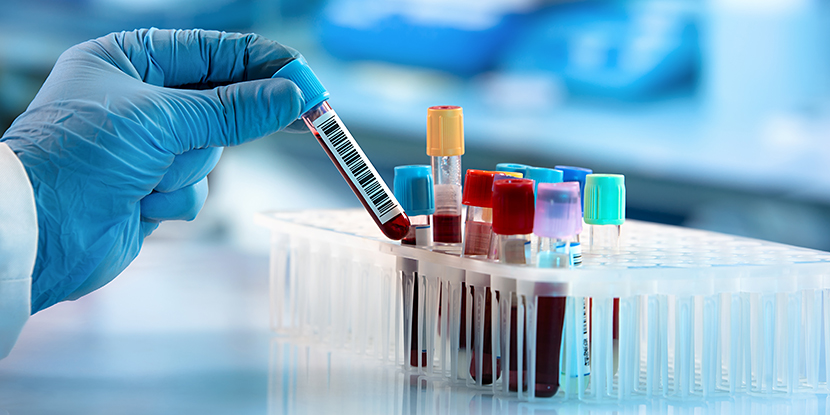
Labrador Diagnostics acquired the patent after Theranos’ fraud scandal ©angellodeco/ADOBE Stock
At the centre of the dispute lies EP 1 883 341, which protects “point of care systems and uses thereof”. The patent covers a portable diagnostic solution for blood testing, including Covid-19 detection. The patent owner is US company Labrador Diagnostics, a subsidiary of Fortress Investment Group. Fortress is a private equity fund specialising in hedge funds and is itself part of the Japanese SoftBank Group.
EP 341 is one of several patents that Fortress acquired from Theranos after the US blood-testing device developer went bankrupt following a fraud scandal. Fortress later established Labrador Diagnostics as the patent holder.
EP 341 faced opposition proceedings at the EPO, initially launched by James Poole. In 2022, the Opposition Division maintained the patent in amended form after declaring claim No. 1 invalid. BioMérieux joined appeal proceedings at the Boards of Appeal in November 2023.
In France, following a seizure at bioMérieux’s premises in summer 2023, Labrador filed a claim against the French biotech company at the Judicial Court Paris for infringing EP 341. The patent holder sought injunctions against the sale of bioMérieux’s products FilmArray 2.0, FilmArray V2.0, FilmArray Torch and Spotfire, as well as a recall. BioMérieux challenged the seizure order in response. In February 2024, the Judicial Court ordered Labrador to pay a security before receiving the seized documents from bioMérieux in redacted form. The court rejected the defendant’s request for a confidentiality circle (case ID: 23/10347).
In September 2024, the EPO Boards of Appeal revoked the patent. Labrador subsequently withdrew its action on the merits. Parallel proceedings are ongoing in Germany and at the UPC. The latter concerns Labrador’s patent EP 3 756 767.
For the national dispute, Labrador retained French IP boutique Amar Goussu Staub, with name partner Cyrille Amar at the helm. For the parallel UPC proceedings, British-German-Swedish firm EIP, which has an alliance with Amar Goussu Staub for UPC disputes, takes the lead. EIP’s Düsseldorf office represents Labrador in the German proceedings. The London team of mixed firm EIP also represented the US company in the EPO opposition proceedings.
The French biotech company bioMérieux appointed a team from Jones Day led by Paris-based litigator and partner Thomas Bouvet for the defence. In the EPO opposition proceedings, the mixed IP team of August Debouzy represented bioMérieux, while British firm Carpmaels & Ransford acted for the first opponent James Poole.
Clinical trials can constitute patent infringement
In the dispute between Insulet and Medtrum the Judicial Court of Paris found an Insulet patent valid and infringed before the devices even reached the market.
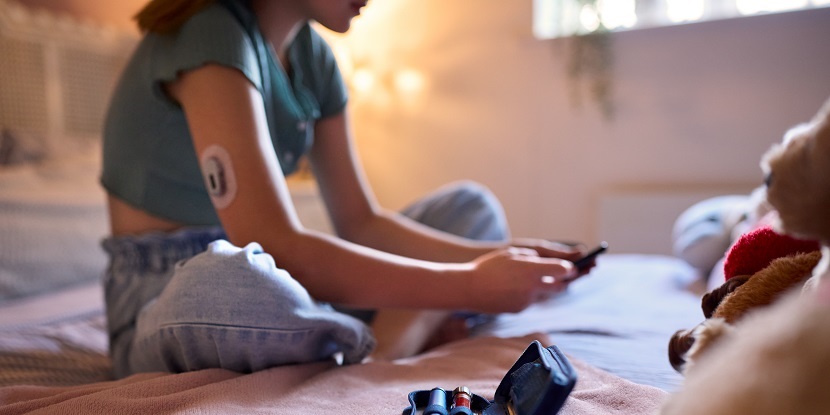
At the heart of the issue are insulin-monitoring devices, which are increasingly popular among those with diabetes. ©Monkey Business/ADOBE STOCK
The case on the merits concerns EP 1 874 390, which protects an insulin delivery system for diabetes patients. Insulet alleged that Medtrum’s A6 and A7+ TouchCare devices infringe the patent. The Judicial Court of Paris found the patent valid and infringed (case ID: 20/12350).
In an unprecedented move for the French courts, the judges ruled that Medtrum’s clinical trials for its A7+ TouchCare device constituted the infringing act. The company had also based its reimbursement file, which determines the price it could charge for each product, on these clinical trials.
While the Paris court has traditionally considered importation and online sales as infringing acts in patent proceedings, in this case Insulet prevailed without the devices even reaching the market. Typically, courts only find infringement once products are commercially available.
In July 2023, in parallel proceedings, the Judicial Court of Paris ordered subsidiaries Medtrum GmbH and Medtrum B.V. to recall all Nano TouchCare models sold in France. This followed alleged infringement of Insulet patent EP 2 438 957. The case remains pending on the merits.